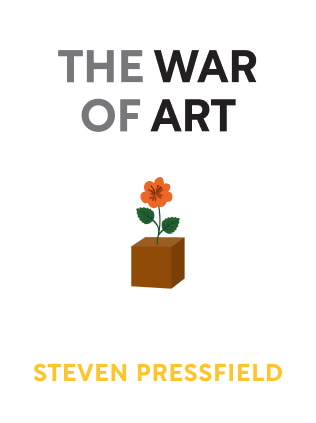

This article is an excerpt from the Shortform book guide to "The War of Art" by Steven Pressfield. Shortform has the world's best summaries and analyses of books you should be reading.
Like this article? Sign up for a free trial here .
Are you on the right path in life? What are the key signs you’re not reaching your potential?
We all have the ability to follow our true calling and achieve our ambitions, but sometimes life gets in the way. Knowing the signs that you’re not on the right path in life will help you realize that something needs to change so you can reach your full potential.
Here are eight tell-tale signs you’re not on the right path.
Signs You’re Not on the Right Path
Below you’ll find eight signs you’re not on the right path in life. If you recognize any of these signs in your own life, consider changing your approach.
1) Inaction
- The most common sign you’re not on the right path is procrastination. You want to achieve your dreams, but you put off starting. For example, you want to write a book, and you intend to write it. But instead of starting to write your book, you put it off until tomorrow. You rationalize this decision as a lack of energy or time. Really, it’s resistance manipulating your motivation.
2) Inaction as a way of life
- Procrastinating one day is normal. Procrastinating day after day is a habit. That habit can become a personal character flaw if you let it. You have the power every day to stop this in its tracks. All you have to do is take the first step toward achieving your goal. If you put that first step off again and again, you have made procrastination a lifestyle and resistance your best friend.
3) An unnatural fixation with instant gratification
- Sex, drugs, alcohol, television, eating, and shopping all provide immediate gratification. The trick is to pay attention to the value of the pleasure. If your pleasure-seeking behavior was truly to experience pleasure, your gratification will be pure. If your behavior was the work of resistance, you will likely feel empty or guilty afterward. The more flimsy the gratification, the more likely it is that you’re not on the right path.
4) A gravitation toward trouble
- When you make trouble for yourself or engage in activities that are high-risk, you willingly create an environment that detracts from positive work. Trouble draws your attention away from the scary act of pursuing your true nature. This takes the shape of jealousy, emotional or physical infidelity, tardiness, or illicit substance abuse. Hypochondria or a complacence with poor health are also forms of resistance. When you seek trouble, you seek an escape from the work required to reach your full potential and this is a key sign you’re not on the right path.
5) Dramatic behavior
- Have you ever known someone who acts like a drama queen? How productive is that person? Likely not very. When you create drama in your life, you open the door to distraction. Drama gives significance to everything besides the important work you need to be doing. A happy life is a productive life. A life of drama is a life of overinflated emotional investment. There is no room left for your spirit to shine when all you experience is drama, and if this is the case you’re definitely not on the right path.
6) Self-soothing behaviors
- The world is full of guidance on how to reduce anxiety and depression. To be clear, this is not an attack on mental illness. Mental health disorders are real, and medications can help. But many people experience smaller and infrequent versions of these afflictions and choose to self-soothe instead of self-improve. For instance, drug use, whether with prescription, over-the-counter, or illegal drugs, helps assuage feelings of despair and anxiety. Instead of working to reach a stable place of satisfaction and positivity, you engage in a quick fix.
7) Playing the role of victim
- Another sign you’re not on the right path is a willingness to be the victim. When you jump from illness to illness, blame your inaction on others, or always feel injured by the actions of others, you are playing the victim and your behavior is passive. No work is achieved through passive behavior.
8) Supporting another’s dream
- You will always experience a lack of fear when you put energy into the dreams of a loved one. You have no higher connection with another’s fulfillment of their calling, so there is no risk. For instance, if your spouse fails at his dream, your lifestyle or relationship may change, but your personal spirit is uninvolved. You may even choose a spouse who is winning the war over resistance because it makes your calling seem insignificant in comparison. Supporting another’s dream is resistance giving you the perfect excuse to not put energy toward your own dreams.
The Consequences of Not Being on the Right Path
When you don’t live up to your true potential, you feel an undertone of discontent in life. You become unhappy. You get bored or anxious. You experience a deep sensation of guilt, but you don’t understand why. You crawl under the covers because you don’t know what else to do. Or you seek activities that will help you continue to live with resistance, like drugs, sex, or entertainment. You start to feel ashamed and hate your life because somewhere inside you know you should be doing more.
Over time, these feelings grow and invite trouble into your life. Left unchecked, this can lead to mental disturbances, such as a quick temper, depression, or reduced functionality. You may harm yourself or others.
This is what feeling trapped under the power of inactivity is like. You must revolt against these feelings and symptoms. You must cut the ties with get-help-quick schemes. Only by taking the steps to fulfill your calling will you be able to beat resistance and become happy with yourself and life.

———End of Preview———
Like what you just read? Read the rest of the world's best book summary and analysis of Steven Pressfield's "The War of Art" at Shortform .
Here's what you'll find in our full The War of Art summary :
- Why creative people feel resistance when approaching their true work
- How to break down the wall that holds you back from reaching your potential
- How to tap into your creative power and honor the genius you were born with






